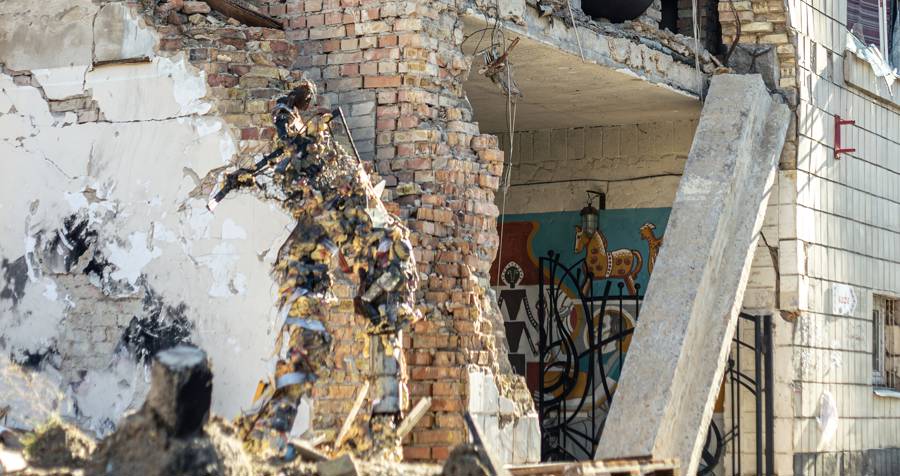Building Collapses: A France Tragedy That Also Raises Concerns in Quebec
Neglecting the maintenance of a condominium is not just a financial risk — it’s also a human one.

News
On November 5, 2018, a building located at 65 rue d’Aubagne in Marseille collapsed, bringing down with it a neighboring structure owned by the City. The toll was tragic: several people lost their lives. This disaster, which has become symbolic of the co-ownership housing crisis in France, recently reached a significant judicial conclusion. Several individuals were found guilty, including co-owners, a property manager, the legal representative of the co-ownership (known in France as the syndic — a role comparable to a property manager or administrator in Quebec), municipal experts, and local elected officials. Some were even sentenced to prison.
The reason? Knowingly blocking urgent repair work in the context of a severely deteriorated building. One of the convicted co-owners, also the syndic’s lawyer, allegedly used his influence to prevent the adoption of resolutions in order to avoid paying his share. The building, in a state of advanced decay, housed vulnerable tenants: water infiltration, unstable floors, faulty electrical systems, mold, and infestation all added to a well-documented risk of collapse.
A reality that echoes in Quebec
While no tragedy of this magnitude has yet occurred in Quebec, several recent cases show that we are not immune. Structural sinking, repeated water infiltration, deteriorated balconies, and weakened underground garages point to an aging building stock, especially among condominiums built between 1980 and 2000. In many buildings, expert-recommended work is postponed or rejected under the pretext that co-owners are unwilling to pay.
In some cases, proactive administrators are even removed by the assembly and replaced by individuals more focused on keeping fees low than on fulfilling legal obligations. This dynamic delays essential repairs and puts residents’ safety at risk. Yet the Civil Code of Québec is unequivocal: under article 1039, the syndicate of co-owners is legally required to ensure the maintenance and preservation of the building.
Tragedies elsewhere reinforce this reality. In 2021, the Champlain Towers South condominium in Surfside, Florida, collapsed, killing 98 people. The investigation revealed severe structural corrosion and repair work that had been repeatedly postponed. In 2022, in Lille, France, a building collapsed despite a tenant raising the alarm the day before. One person died, and an investigation was launched to assess the responsibility of both the co-owners and the municipality.
For several years now, the RGCQ, Condolegal.com, and other stakeholders have been sounding the alarm about the vulnerability of certain Quebec condominiums. Despite studies, reports, and professional recommendations, necessary work is often delayed due to a lack of consensus or insufficient funding. Even when contingency funds exist, they are often inadequate.
Regulation is strengthening — but awareness must follow
To address these issues, the Government of Quebec published a draft regulation on September 11, 2024, following the adoption of Bills 16 and 31. This regulation, expected to come into force shortly, aims to improve transparency, planning, and sound management in divided co-ownerships.
It introduces three key obligations:
-
Mandatory review of the maintenance logbook every five years, to ensure that all building components are regularly monitored and documented;
-
A reserve fund study based on a 25-year horizon, to provide a realistic planning tool for accumulating the funds required for major repairs;
-
A mandatory certificate to be provided upon the sale of a unit, giving prospective buyers a clear picture of the building’s physical condition and financial health.
These measures are designed to promote a long-term culture of prevention and reduce overreliance on unpredictable assembly decisions. Because beyond regulatory tools, what’s needed is a collective awakening: managing a building cannot be reduced to short-term financial considerations.
The tragedies in Marseille, Surfside, and Lille remind us that inaction can lead to the irreversible. While the majority of Quebec syndicates fulfill their responsibilities, some properties are already showing worrying signs of neglect. This is not merely a matter of budgeting — it is a matter of legal duty. If we continue to delay action, Quebec, too, could one day face a preventable tragedy.
By Me Yves Joli-Coeur, Emeritus Lawyer, President of the Regroupement des gestionnaires et copropriétaires du Québec (RGCQ)
Login to view this content
Become a member
Access all our services and a vast network of experts by becoming a member of the RGCQ.